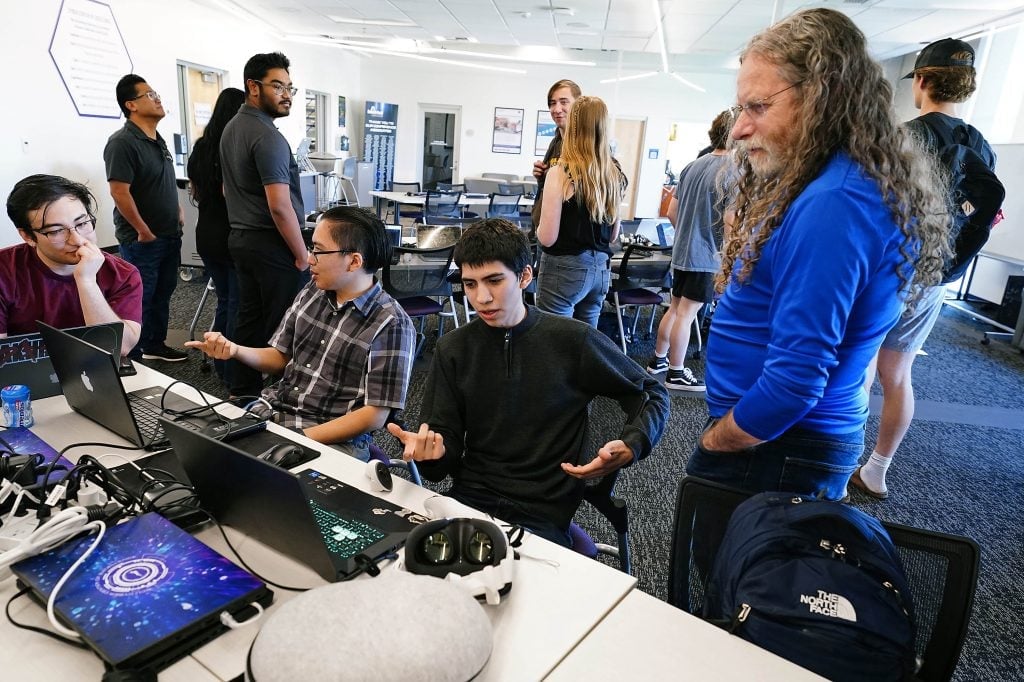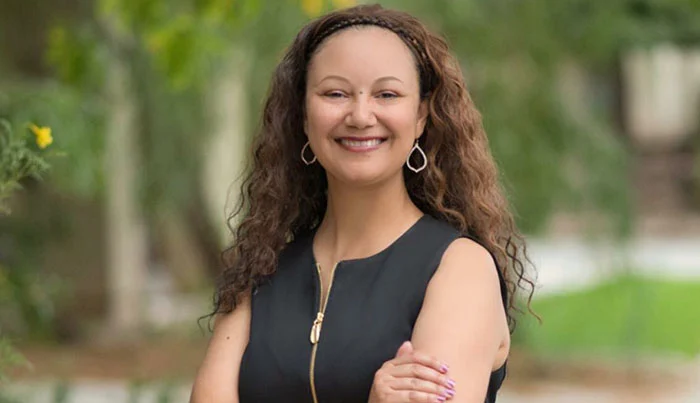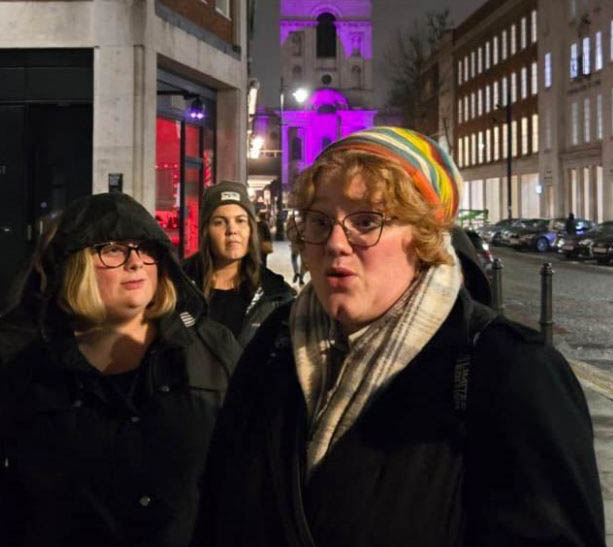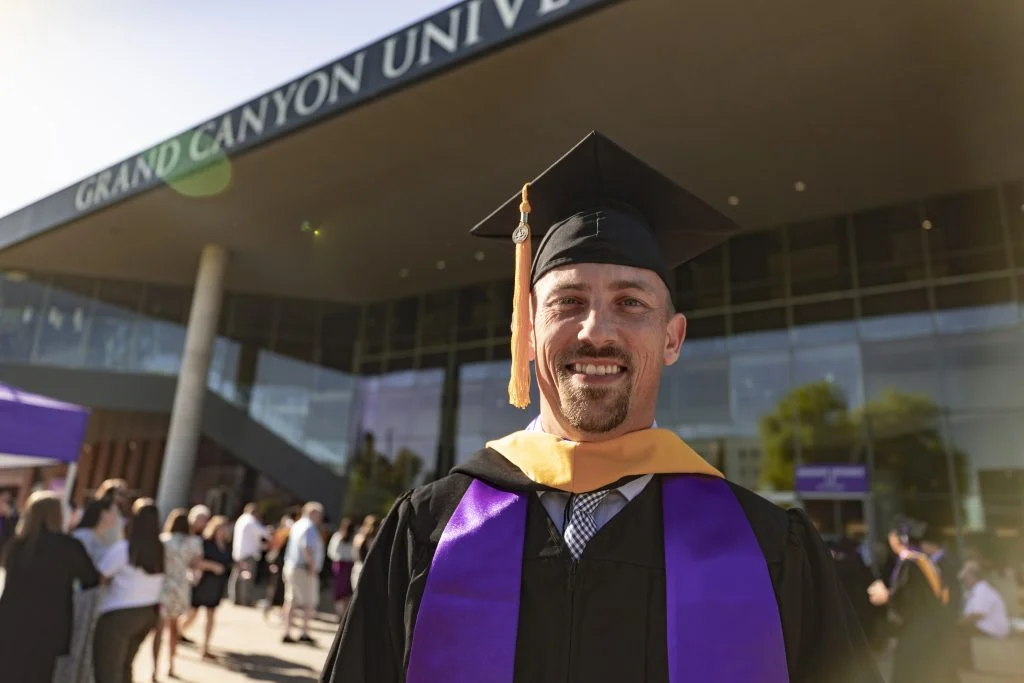
Artificial intelligence in behavioral health is fast developing, according to a panel of experts at Grand Canyon University on Monday.
AI can analyze recorded therapy sessions and even emotional expressions and suggest questions, for example.
“I am human. I cannot pick up every single word and every single nuance that a person is telling me,” said Dr. Isac Artzi, a GCU computer science professor who is conducting research on AI tools to assist counselors.
“This is a more deliberate apprentice. … ‘Remember 10 minutes ago, they said such and such, how about following up on that thread?’”

Artzi, who has degrees in both technology and behavioral health areas, was one of five panelists in the keynote address of the Eighth Annual Virtual Behavioral Health Conference, “Emerging Techniques, Evolving Minds: The Future of Behavioral Health.”
“It can be scary, and the movies don’t help us with that – ‘AI is taking over!’ – but at the end of the day, we have control of our world,” said Dr. Anna Edgeston, panel moderator and assistant dean of graduate counseling programs in the College of Humanities and Social Sciences. “We are hearing about the integration of humanness and technology that can really be beneficial.”
Artzi also said technology can help solve a severe shortage of therapists in underserved communities, such as Cochise County in Arizona. Once internet access issues are resolved by using satellite and tablets to provide remote care, telehealth can be a reality there. He is pursuing a grant for it.
Panelist Catherine Hallam, a behavioral health science instructor at GCU, says she uses digital play therapy in her work with neurodivergent populations in her practice, integrating video games and art therapy.

She even has used AI to create images for people she is counseling in other parts of the world. There were language barriers with a fisherman in Micronesia, and he couldn’t understand her ideas on meditation, she said. So she created an image of a person lying in his boat that he described. He got it.
“That pivotal event opened up dialogue,” she said.
She also has used a Dungeons and Dragons-like game for children so they could tell about their world in a session. “It is kind of a new wave of therapy,” she said.
New technology can bring up ethical concerns.
Transparency and informed consent by patients is important. Even a therapist bringing their own phone into a session can be a problem because it can pick up conversations and, in one case, sent advertisements to a client based on the discussion.
“Really knowing the limits of the tools is important, as well and conveying that to clients to make informed decisions on their care,” said Dr. Jennifer Young, a panelist and former GCU director of counselor education and supervision who has written papers on using AI to detect bias in training counselors.
Technology doesn’t change that it is still humans who are gatekeepers and must learn to work with many diverse populations.

Josh Danaher has encountered this in exploring his own innovation, combining Brazilian jiu-jitsu with mental health counseling. The former GCU communications professor, who today works for Christian Counseling Services, spotted the connection between martial arts practice and mental health, transforming trauma into self-efficacy.
It puts people in situations in a safe environment that are uncomfortable, he said, which creates negative emotions. But under the surface there is adaption and a resulting self-efficacy, he said. “They learn how to defend themselves.”
It’s helped work with populations that are difficult, such as young men and boys, who are hypo-aroused, or express too few emotions. “You mean I don’t have to sit on your couch and tell you my feelings? Well, we are still telling feelings,” he said. “… Getting on a jiu-jitsu mat helps with that in a lot of ways.”
That integrative mindset, whether martial arts or AI, has been key, the panelists say, and even came out in the session.
“Listening to Josh gave me a great idea,” said Artzi, describing a trend in Germany of chess boxing, where competitors win by either a knockout or a checkmate, showing that each are not limited to their brawn or brain categories. “I wonder if we could do this at GCU – a minor in martial arts and AI?”
Young urged students to embrace that kind of integrative passion. “You might be the catalyst for a whole new counseling model.”
“At the end of the day, these come from a human being,” Edgeston said. “No matter what time we are in history … no matter the innovation, no matter the change, at the end of the day, what doesn’t change is the human being and their intrinsic need to be loved and to connect.”
Grand Canyon University senior writer Mike Kilen can be reached at [email protected]
***
Related content:
GCU News: From rocket design to AI, research program gives undergrads a boost
GCU News: Commencement speaker shares a sober 3 Cs of a good life



































































